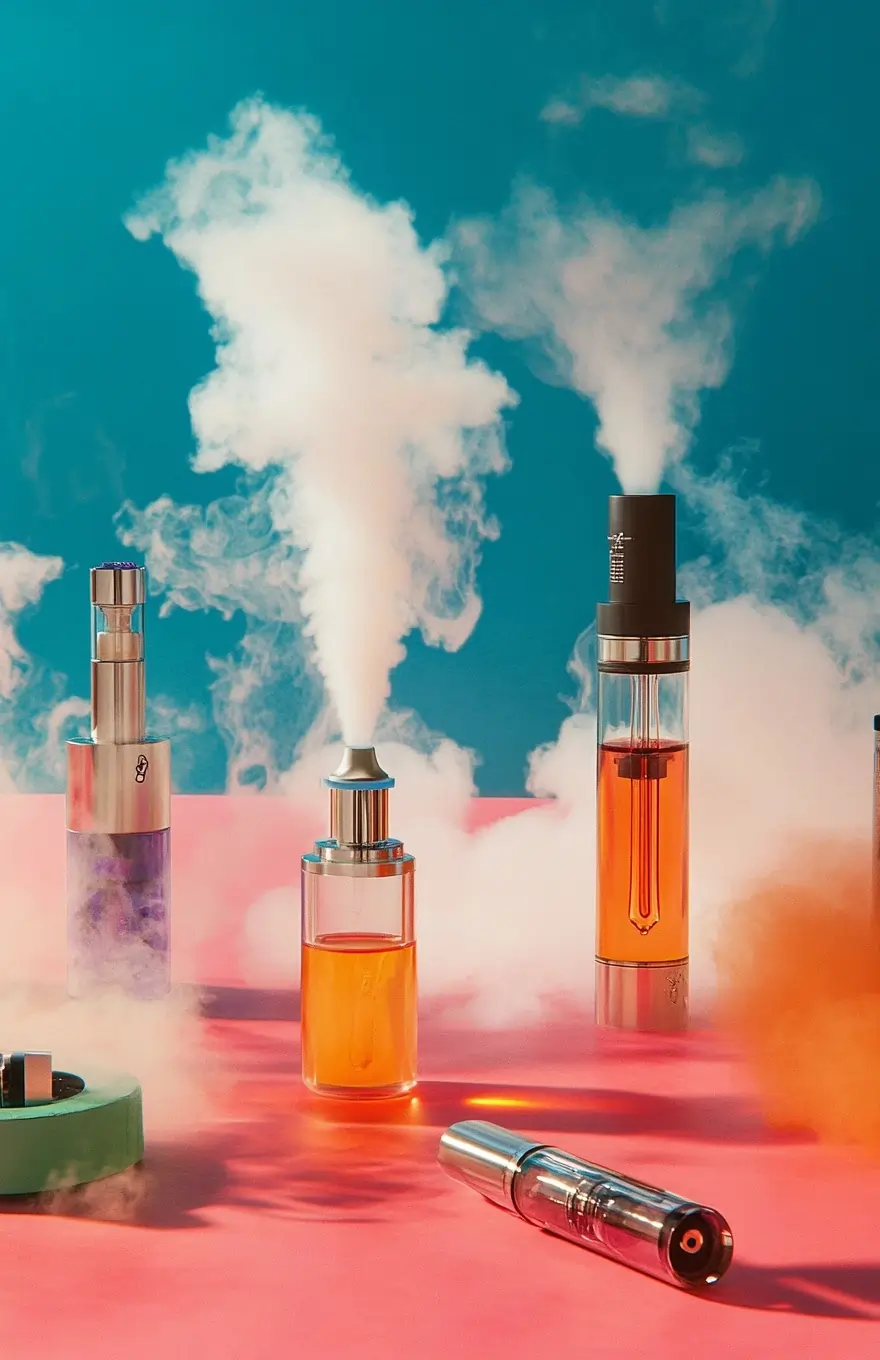

Is blue lotus legal? That’s a question worth answering, especially since this herb has some legalities that relate to it. The blue lotus flower has been turning heads for centuries. Known for promoting sleep, sparking feelings of relaxation, and even being called a natural aphrodisiac, this ancient plant has mild psychoactive effects that keep it in the spotlight.
If you’re curious about blue lotus or are considering it, it’s smart to know where it stands legally. For the most part, it is considered legal, but the rules can vary, and staying informed helps you enjoy it without worry. Keep reading to learn all about its legal status, how it’s viewed at the federal level, and the best ways to use it responsibly.
Blue lotus, or Nymphaea caerulea, is a gorgeous water lily found mainly in Egypt and parts of Asia. It’s no ordinary flower—it’s packed with active compounds like apomorphine and nuciferine, which give it its potential psychoactive properties. These compounds are believed to bring on mild euphoria and relaxation, which might explain its enduring popularity.
People have been using blue lotus for thousands of years, and it’s not hard to see why. Its reputation as an ancient flower with calming effects and potential benefits like better sleep and enhanced mood make it a go-to for many. Whether you’re brewing it into tea or exploring other edible or smokable forms, this flower has a lot to offer. No wonder it’s still a hot topic today!
The blue lotus flower has deep roots in history. Ancient Egyptians loved this ancient flower, using it for religious ceremonies and everyday life. You’ll even find it painted on tomb walls and written about in ancient papyri. They believed the flower’s psychoactive properties brought them closer to their gods.
But the story doesn’t stop in Egypt. Blue water lily symbolism also pops up in Hinduism and Buddhism, representing purity and wisdom. This ancient Egyptian lotus has become a global icon of spirituality and wellness, carrying its legendary appeal into modern times.
Blue lotus owes its unique effects to two standout compounds: apomorphine and nuciferine. These natural elements are what give this flower its relaxing and mildly euphoric reputation. Here’s a closer look at how they work:
These two compounds are what make blue lotus products a favorite for anyone looking for natural relaxation and mood support.
![Is Blue Lotus Legal? [Legalities & Uses Explained] 1 is blue lotus legal](https://hollyweedhemp.com/wp-content/uploads/2025/02/blue-lotus_1-1.webp)
Federally speaking, it is legal for anyone over the age of eighteen to buy, possess, or consume this flower. However, figuring out if blue lotus is legal also depends on your local laws, which restrictions can still vary. It’s always best to check with your local regulations to verify legality in your jurisdiction.
Internationally, things get trickier, with some countries outright banning it due to its psychoactive properties. Let’s look closer at how blue lotus legality plays out in the U.S. and around the world.
In the United States, blue lotus flowers are federally legal, which means they aren’t classified as controlled substances at the federal level. This makes it widely accessible for personal use, including in forms like tea, dried flowers, and other blue lotus products.
However, state and local laws can still apply. For example, blue lotus is illegal for human consumption in Louisiana, even though it’s federally allowed. If you’re in any other state, you’re free to enjoy it.
The FDA lists blue water lily as one of many “poisonous substances,” but this label doesn’t ban its use. People have been consuming blue lotus safely for centuries as part of wellness routines.
Despite the legal gray area, its popularity continues to grow, with many drawn to its euphoric effects and potential health benefits. Always check your state’s specific regulations before use to avoid any surprises.
The legal status of blue lotus varies greatly depending on the country. In most places, it falls into a gray area where it’s not explicitly banned or fully regulated. Although local laws might differ, it’s often completely legal to possess and use.
For instance, many European Union countries lack a uniform stance on blue lotus legality, leaving it up to individual member states to decide. A few countries, like Russia, Poland, and Latvia, have banned blue Egyptian lotus because of its psychoactive properties. Possessing or consuming it in any form is considered a crime in these places.
Meanwhile, blue lotus products are allowed in most countries, provided they’re not marketed as controlled substances. If you’re traveling, it’s always a good idea to research local laws to avoid any legal trouble.
The blue lotus flower has been a crowd favorite for centuries, and people keep finding new ways to enjoy it. From ancient rituals to modern self-care trends, this beneficial plant fits right in. Here’s how it’s commonly consumed.
If you need a little help chilling out, the blue lotus flower might be your new best friend. It’s known for creating those feel-good, peaceful vibes that help you unwind after a long day. Many believe that consuming blue lotus can help the body manage daily stress and encourage a more peaceful mindset.
Compounds like nuciferine are thought to help create these soothing effects by interacting with the body’s natural systems. Whether you’re sipping it as tea or eating some edibles, it’s a natural way to take the edge off. Plus, it’s been used for this purpose for centuries—proof that this ancient flower knows how to deliver.
The blue Egyptian lotus has roots as deep as the Nile itself. In ancient Egyptian culture, it was more than just a pretty water lily—it played a starring role in religious and healing practices. Thanks to its mild mind-altering effects, people believed it connected them to the gods.
It was also used as a natural remedy for various needs, from calming rituals to health-focused concoctions. Priests, healers, and even everyday folks brewed it into drinks or burned dried flowers during ceremonies. Today, it’s still loved for its timeless ability to soothe and its connection to ancient traditions.
![Is Blue Lotus Legal? [Legalities & Uses Explained] 2 blue lotus flower in smoke](https://hollyweedhemp.com/wp-content/uploads/2025/02/blue-lotus_2-2.webp)
Looking for a fun and easy ways to enjoy the benefits of blue lotus? Hollyweed has you covered with a variety of exciting products that bring this ancient flower into the modern world. Each option is designed to be simple to use and packed with benefits. Whether you prefer sipping, vaping, or even indulging in gummies, you’ll find something that suits your vibe.
We are dedicated to giving you the best experience possible. We prioritize quality, transparency, and customer happiness, making our blue lotus flower products ones you can rely on. Here’s why Hollyweed is the ultimate choice:
The age restrictions for buying or using blue lotus flower depend on your location. In most places, there aren’t strict rules about age, but it’s always a good idea to check your local laws to be sure. Some retailers may require buyers to be 18 or older, so it’s worth confirming before making a purchase.
Consuming blue lotus products is very tolerable for most people, but there are a few things to keep in mind. Some users may experience mild psychoactive effects, like lightheadedness or feeling overly relaxed. Start with a small amount to see how it works for you, and steer clear of things like operating heavy machinery until you’re sure of its effects.